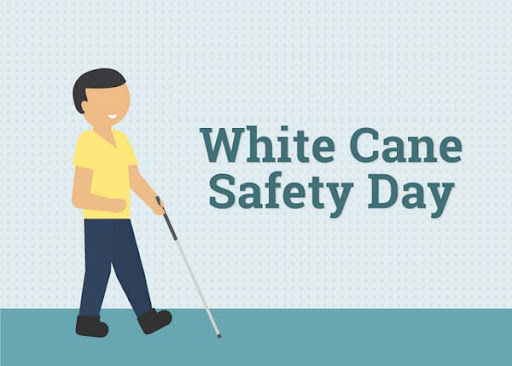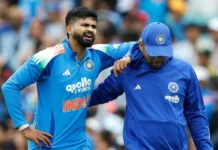World White Cane Day is celebrated annually on October 15. Also known as White Cane Safety Day, the day was first marked in 1964 in the United States by President Lyndon B Johnson. In 2011, President Barack Obama named the day Blind Americans Equality Day. The World White Cane Day is now seen around the world and sees the movement of blind people from dependence to active participation in society. It also celebrates the success of the blind.

Important Announcement – EasyShiksha has now started Online Internship Program “Ab India Sikhega Ghar Se”

Q. Are EasyShiksha's internships truly free?
Yes, all internships offered by EasyShiksha are completely free of charge.
Q. How can I apply for an internship with EasyShiksha?
You can apply by visiting our website, browsing available internships, and following the application instructions provided.
Q. What types of internships are available through EasyShiksha?
EasyShiksha offers a wide range of internships across technology, business, marketing, healthcare, and more. Opportunities are continuously updated.
Q. Will I receive a certificate upon completing an internship?
Yes, upon successful completion, you will receive a certificate recognizing your participation and achievements.
Q. Are EasyShiksha's internship certificates recognized by universities and employers?
Yes, the certificates are recognized by universities, colleges, and employers worldwide.
Q. Is the download of certificates free or paid?
Access to internships and courses is free, but there is a small fee to download certificates, covering administrative costs.
Q. When can I start the course?
You can choose any course and start immediately without delay.
Q. What are the course and session timings?
These are fully online courses. You can learn at any time and pace. We recommend following a routine, but it depends on your schedule.
Q. What will happen when my course is over?
After completion, you will have lifetime access to the course for future reference.
Q. Can I download the notes and study material?
Yes, you can access and download course materials and have lifetime access for future reference.
Q. What software/tools would be needed for the course?
All necessary software/tools will be shared during the training as needed.
Q. I’m unable to make a payment. What should I do?
Try using a different card or account. If the problem persists, email us at info@easyshiksha.com.
Q. Do I get the certificate in hard copy?
No, only a soft copy is provided, which can be downloaded and printed if required.
Q. The payment got deducted but shows “failed”. What to do?
Technical errors may cause this. The deducted amount will be returned to your account in 7-10 working days.
Q. Payment was successful but dashboard shows ‘Buy Now’?
Sometimes payment reflection is delayed. If it takes longer than 30 minutes, email info@easyshiksha.com with the payment screenshot.
Q. What is the refund policy?
If you face technical issues, you can request a refund. No refunds are issued once the certificate has been generated.
Q. Can I enroll in a single course?
Yes, select the course of interest, fill in the details, make payment, and start learning. You will also earn a certificate.
Q. My questions are not listed above. I need further help.
Contact us at info@easyshiksha.com for further assistance.
Why do we celebrate this day?
A World Vision Report report, published by the World Health Organization earlier this month, reveals that at least 2.2 billion people have a visual impairment, a major concern being that at least one million of these people have a vision defect that can be prevented or corrected. These statistics are rising daily, and they clearly tell us that there are major challenges to eye care.
Therefore, we need to thank organizations such as the Lesotho National League of the Visually Impaired Persons (LNLVIP), which for more than two decades has been promoting and promoting equitable access to social services for people with visual disabilities, and capacity to build communities through prevention, treatment and rehabilitation. The Government of Lesotho ratified the UN Convention on the Rights of Persons with Disabilities in 2008 and in doing so committed itself to adopting policies and implementing programs designed to protect and promote the rights of persons with disabilities, including those with disabilities. In 2018, the United Nations released a report entitled: Development and Disability: Achieving the Sustainable Development Goals for People, and People with Disabilities. As per the latest reports, people with disabilities continue to face many barriers to their full integration and participation in the lives of their communities. It illuminates their level of poverty; their lack of access to education, health services and employment; and their representation in decision-making and political participation.
Top Courses in Software Engineering
What needs to be done?
To contribute to improving the living conditions of visually impaired people, the UN program prides itself on donating 50 white sticks to LNLVIP. As you know, white sugarcane is an important tool that helps visually impaired people to move about freely and safely. It is a sign of independence. This is because we understand that visual impairment affects every aspect of a person’s life and that this challenge is often not evenly distributed.
The burden is often greater between people in rural communities and the disabled. And it is our hope that this small donation will make a positive difference in a person’s daily life. As you know, one of the key objectives of the Sustainable Development Goals (SDGs) is not to leave anyone behind. This small donation reflects solidarity with the visually impaired people of Lesotho. And it is acknowledging that VIPs have a role to play in the development of the country. So we don’t want to leave them behind.
The UN will continue to strengthen relations with the Government of Lesotho and disability organizations in order to implement the UN Convention on the Rights of Persons with Disabilities and to ensure that disability is focused on the implementation of the SDGs and in doing so, leaves no one behind.
I therefore urge all current and non-existent stakeholders to work together to make eye care an integral part of our health care system in Lesotho, and to continue to engage and empower people and communities with eye care needs. It is also important to create an enabling environment for people with visible disabilities so that they can access and enjoy the social, economic and political benefits arising from development programs on an equal footing with their non-disabled partners.
ALSO READ: world-arthritis-day
Get Course: Learn-Psychology-Online



































































